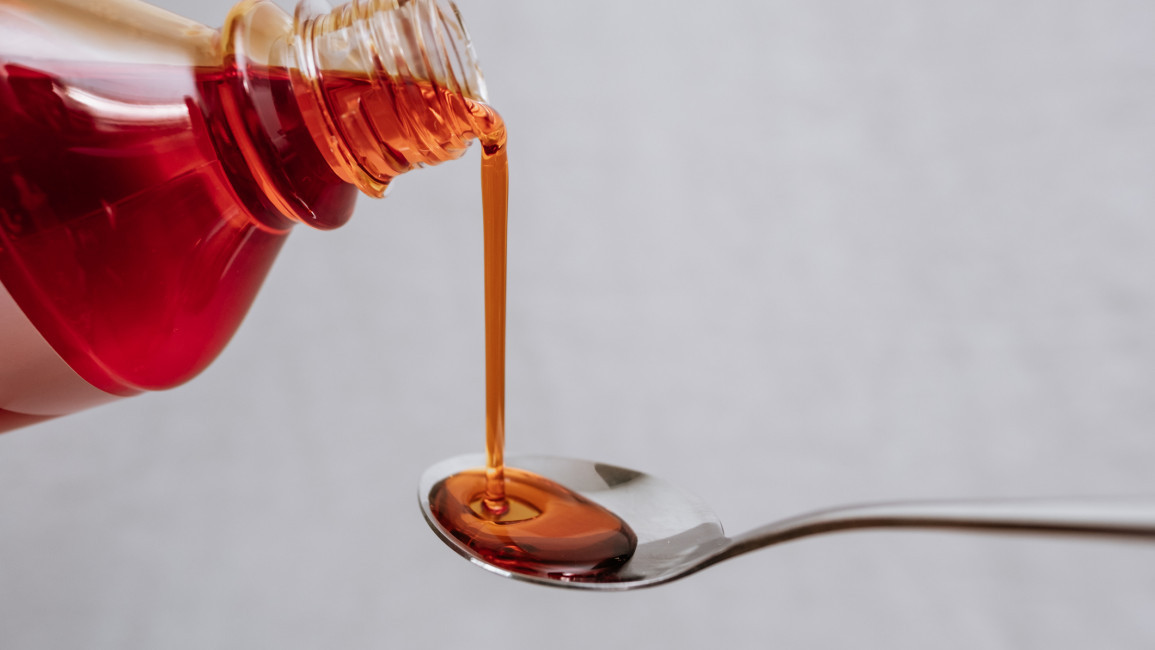Iraqi officials block import of 'toxic' Indian cough syrup, but remains silent on if any deaths occurred
Iraqi health officials say an Indian cough syrup linked to the deaths of dozens of children overseas is not licensed for importing and threatened to punish vendors that might sell the toxic syrup.
Last week, Bloomberg News reported that a cold medication made in India and sold in Iraq was tainted with toxic chemicals.
"A bottle of Cold Out purchased at a pharmacy in Baghdad in March contains 2.1% ethylene glycol, according to Valisure LLC, an independent US laboratory. That's about 21 times the widely accepted limit," Bloomberg News reported after commissioning a syrup test.
"The compound is lethal to humans in small amounts and played a role in mass child deaths caused by Indian-made cough syrups in Gambia and Uzbekistan last year," it added.
Last year, at least 66 children in Gambia died from kidney injuries reportedly linked to contaminated cough and cold syrups made by an Indian drug manufacturer.
India has found violations related to manufacturing and laboratory practices at drugmaker Riemann Labs, whose cough syrup was linked to the deaths of children in Cameroon, a government health official also told Reuters on Wednesday, 2 August.
The test finding was endorsed by the World Health Organisation (WHO).
The New Arab contacted Saif al-Bader, a spokesperson for Iraq's health ministry, for comment on the matter, but he declined to answer specific questions about the syrup.
On Sunday, 30 July, al-Bader, in a statement to Iraq's state news agency (INA), said that the ministry had not licensed the import of the medication, stressing that the ministry would take strict legal measures against any pharmacy or importers if they find the medicine at their disposal.
Importing medicines illegally in Iraq is a common problem, and Iraqi quality control agencies often cannot distinguish harmful medications from good ones. Iraq ranked 157 out of 180 countries in Transparency International's corruption perceptions index in 2022.
Mustafa al-Hiti, head of Iraq's pharmacists' syndicate, told Al-Araby Al-Jadeed, TNA's Arabic-language sister publication, that ethylene glycol had been banned in Iraq for the last 25 years, clarifying that the substance badly affects the liver and results in acidizing the blood, kidney collapse and then death.
He said there may be deaths from the syrup in the country, but the forensic did not confirm any case due to using the syrup.
TNA contacted Aso Hawezi, a spokesperson of the health ministry of the Kurdistan Regional Government (KRG) and head of the Kurdistan region's pharmacists syndicate, but he was not immediately available to comment.
During a brief phone call with TNA, Saman Latif, a spokesperson of Sulaimaniyah City's Directory of Health, said they would confiscate the syrup if found at any pharmacy and punish the perpetrators behind importing and selling it.





 Follow the Middle East's top stories in English at The New Arab on Google News
Follow the Middle East's top stories in English at The New Arab on Google News


